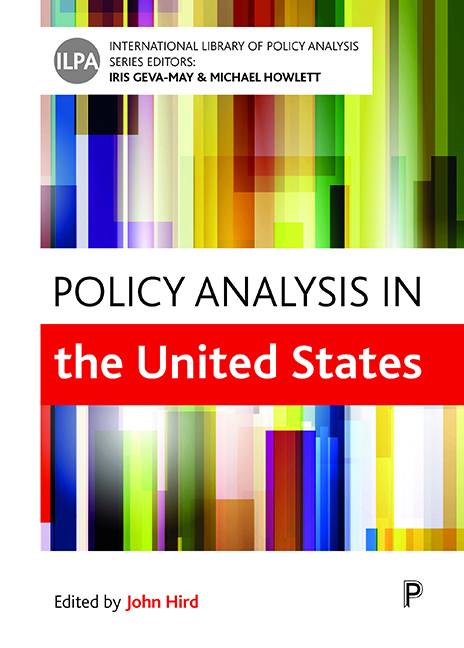Book contents
- Frontmatter
- Contents
- List of tables and figures
- Notes on contributors
- Editors’ introduction to the series
- Introduction
- Part One History, styles, and methods of policy analysis in the United States
- Part Two Policy analysis by governments
- Part Three Policy analysis outside of government
- Part Four Policy analysis education and impact internationally
- Index
Fourteen - The media
Published online by Cambridge University Press: 12 April 2022
- Frontmatter
- Contents
- List of tables and figures
- Notes on contributors
- Editors’ introduction to the series
- Introduction
- Part One History, styles, and methods of policy analysis in the United States
- Part Two Policy analysis by governments
- Part Three Policy analysis outside of government
- Part Four Policy analysis education and impact internationally
- Index
Summary
The role of the mass media in political science is well known—from measures of campaign communications, priming effects on mass publics, and its increasing role in spurring social movements and cultural shifts. The media is an integral part of political life, but as the role of media expands and changes we must consider more than just political consequences, but also those of public policy and governance. It is easy to make associations between media and politics when Tina Fey is doing her famous Sarah Palin impression or candidates for office flood the airwaves with unending commercials. But what is not so clear is how the actions of media outlets and the actors within these institutions affect the public policy process and the manner in which we govern (or not). In the last 20 years, scholars in public policy and political institutions have begun to better understand the role of media in our governing systems and what that means for how we attend to and make policy across numerous types of political systems and institutional venues.
Some early studies of public policy considered the media to be just a ‘vehicle’ for information, serving as merely a conduit for an external process (Kingdon 1984), but more recent scholarship highlights the media's ability to shape those policies that do or do not receive attention, how those policies are received, and how the public responds to elite action. The media is a dynamic political institution (Cook 1998; Boydstun 2013) with norms and routines that affect not only the production of news, but how policymakers and the public alike respond to issues and events. The media can call attention to an issue—such as the firestorm surrounding the events in Ferguson, Missouri after Michael Brown's death—but the media can also work within a political network to maintain issue frames, limit outside attention, and perpetuate the status quo. The media contributes to both positive and negative feedback cycles within the policy process that may speed up or slow down the process (Wolfe 2012). And in addition to direct effects, the media's agenda-setting effect on the public's issue awareness and priorities in turn affects the actions of policymakers who are responsive to their constituents.
- Type
- Chapter
- Information
- Policy Analysis in the United States , pp. 265 - 280Publisher: Bristol University PressPrint publication year: 2018

